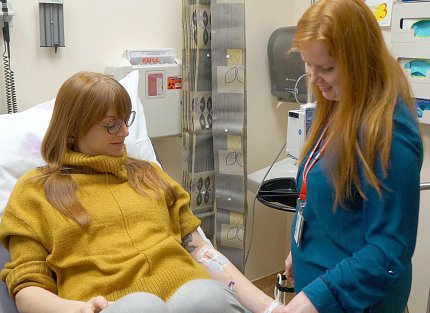First Human Trial of Monoclonal Antibody to Prevent Malaria Opens

Photo: NIAID
A phase 1 clinical trial testing the safety and effectiveness of a monoclonal antibody (mAb) against malaria has begun enrolling healthy adult volunteers at the Clinical Center.
The trial, sponsored by NIAID, is the first to test mAb CIS43LS in humans. It aims to enroll up to 73 volunteers ages 18 through 50 years old who have never had malaria. After receiving mAb CIS43LS, most of the volunteers will be exposed to malaria parasite-carrying mosquitoes under carefully controlled conditions at the Walter Reed National Military Medical Center to assess the ability of the mAb to confer protection from malaria infection.
“If proven safe and effective in this study and in larger trials, this monoclonal antibody might be used prophylactically by tourists, medical workers or military personnel who travel to areas where malaria is common,” said NIAID director Dr. Anthony Fauci. “In the absence of a highly effective, long-lasting vaccine, preventing malaria infections for several months with a single dose of monoclonal antibody also could be valuable in specific parts of Africa where malaria cases increase greatly during annual rainy seasons.”
